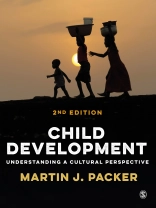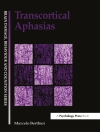Every child is born into a community, a society with a culture, in which they will live, grow and develop. Cultures lead to differences in children’s development, but equally important, culture is an essential component of every child’s psychological development.
Taking a chronological approach, from prenatal development to adolescence, your knowledge of developmental psychology will grow with the child.
To help you in your studies
· Social, cognitive, emotional and physical aspects of development are interwoven to help you connect the material
· You can read case studies from across the globe to enable you to compare cultures
· Key research studies are highlighted to help you get to grips with the theory
· You’ll be encouraged to ‘Stop and think’ and engage your critical skills
You can also access revision tools online.
In this new edition we′ve reduced the number of chapters so it covers only what you need to know and we′ve added a glossary to help with understanding.
This textbook is essential reading for undergraduate students taking an introductory course in child development or developmental psychology.
Tabela de Conteúdo
Chapter 1: Theoretical Perspectives in Developmental Psychology
Chapter 2: Evolution and Human Development
Chapter 3: Prenatal Development, Birth, and the Newborn (Conception to 6 weeks of age)
Chapter 4: Infancy—A Practical Understanding of the World (6 weeks—12 months)
Chapter 5: Infancy—Towards Biological Differentiation (6 weeks—12 months)
Chapter 6: Toddlerhood—A World of Irresistible Invitations (1 year—30 months)
Chapter 7: Toddlerhood—Towards Psychological Differentiation (1 year—30 months)
Chapter 8: Early Childhood—Captured by Appearances (3—6 years)
Chapter 9: Early Childhood—Origins of Verbal Thought (3—6 years)
Chapter 10: Middle Childhood—In Work and School (6—12 years)
Chapter 11: Middle Childhood—Understanding Institutional Roles (6—12 years)
Chapter 12: The Teenage Years—Adolescent or Adult? (12 years and up)
Chapter 13: The Teenage Years—Differentiation Between Actual and Possible (12 years and up)
Sobre o autor
Martin Packer is an independent researcher in Bogotá, Colombia. He received his BA in Natural Sciences at Cambridge University, United Kingdom, and his Ph D in Psychology at the University of California, Berkeley. He was a research psychologist at Bedford College, University of London, and St. Mary’s Hospital Perinatal Research Unit. He has taught at the University of California, Berkeley, the University of Michigan, Duquesne University, la Universidad de los Andes in Bogotá, and la Universidad de San Buenaventura in Cali, Colombia. He has been visiting professor at Universidad de las Américas, in Puebla, Mexico, and at Universidad Autónoma Metropolitana, in Xochimilco, Mexico City. His research has explored interactions between neonates and their mothers, early childhood–peer relations, conflict among adolescents, and the way schools change the kind of person a child becomes. Packer is co-editor of Entering the Circle: Hermeneutic Investigation in Psychology (with Ritch Addison), Cultural and Critical Perspectives on Human Development (with Mark Tappan) and Reflections on the Learning Sciences (with Michael Evans and Keith Sawyer). He is author of The Structure of Moral Action, of Changing Classes: School Reform and the New Economy, and of The Science of Qualitative Research (now in its second edition, and translated into Spanish). He was one of the founding co-editors of the journal Qualitative Research in Psychology, has been an editor of Mind, Culture, and Activity, and has published articles in American Psychologist, Educational Psychologist, The Journal of the Learning Sciences, Revista Colombiana de Psicología, and Mind, Culture & Activity. He is currently an editorial board member of The Humanistic Psychologist, Qualitative Research in Psychology, and Mind, Culture, and Activity.












